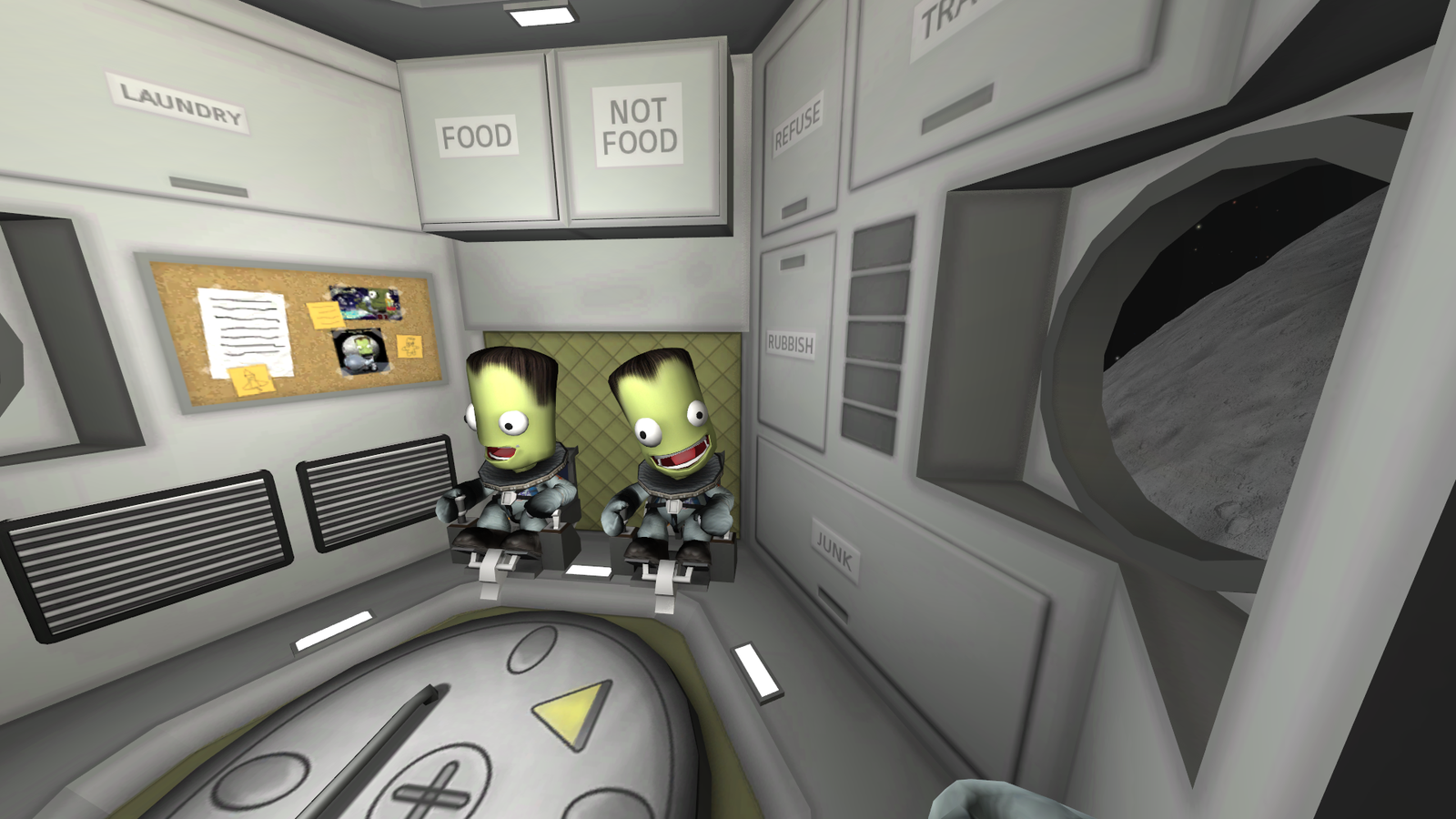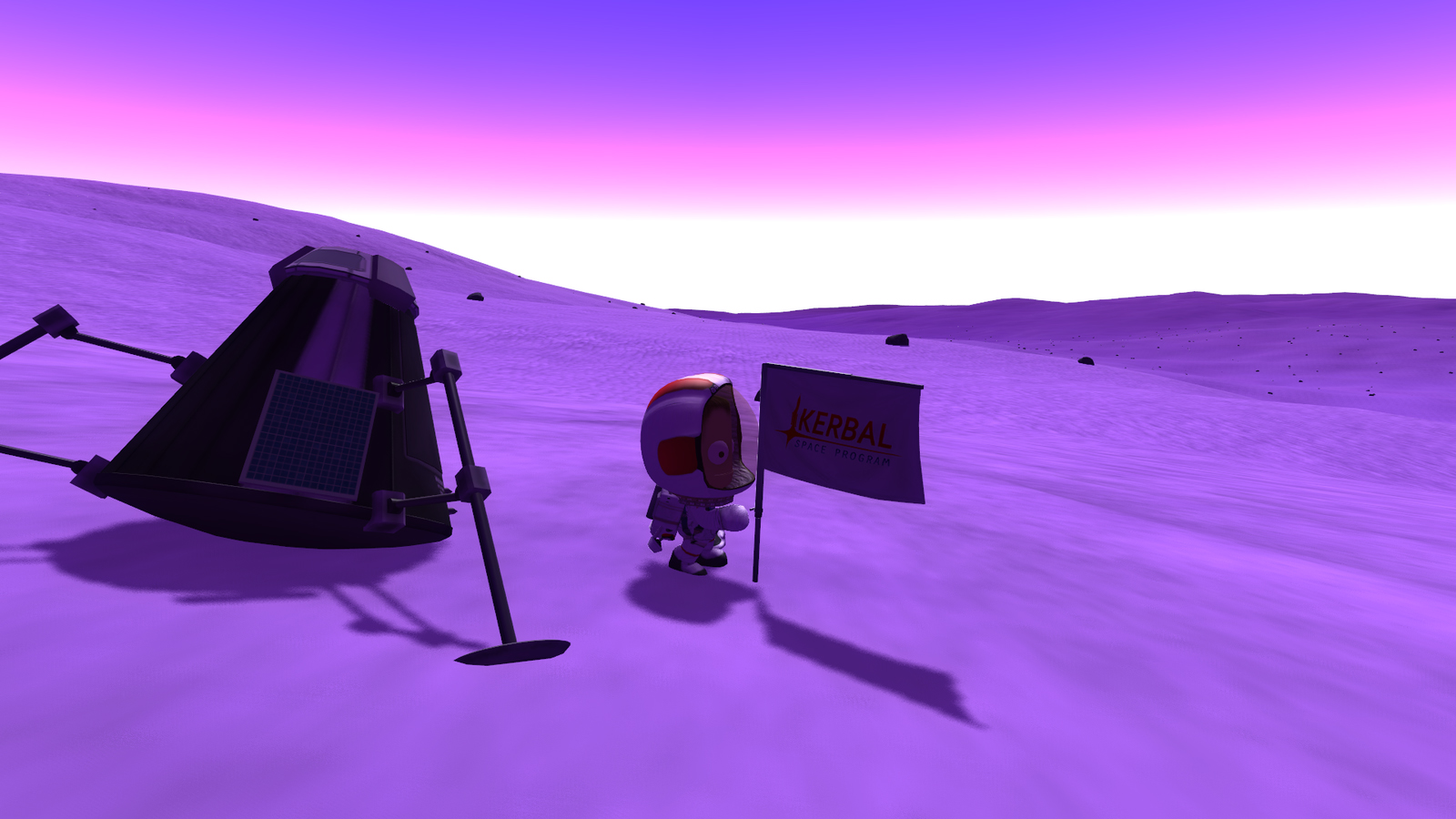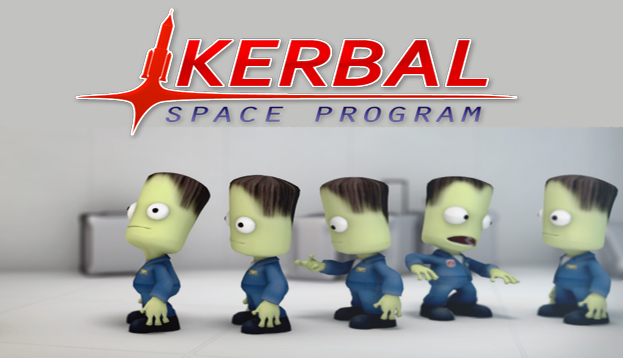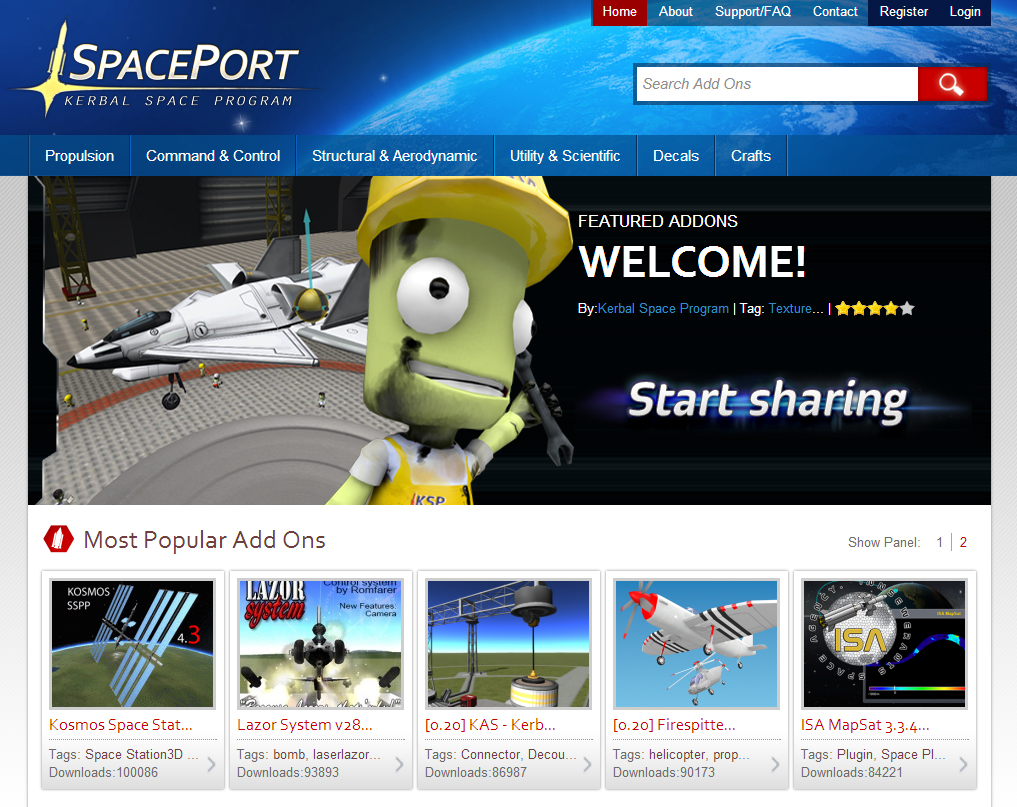Squad is aptly named. The Mexico-based company was founded in 2008 as a marketing firm that wanted to be an employee-centric workplace, according to co-founder Adrian Goya. It had enough marketing acumen to draw regional business from global brands such as Coca-Cola and Samsung, but along the way something else bloomed at the firm. It transitioned into a kind of ideation lab, encouraging staff to take advantage of a program the company labels ‘make your dream come true with Squad’. Teams can pitch any new venture, and Squad will fund it as long as there is a potentially successful business case behind it. The program is what gave birth to Kerbal Space Program, a rocket science simulation game that’s long on originality and gaining a dedicated player following.

“Kerbal-nauts” on a mission
Some of the same tenets that seem to underpin Squad as a company also apply to Kerbal Space Program, or KSP, as a game. The brainchild of Squad’s Felipe Falanghe, KSP is one big adventure in courageous risk taking and learning on the go. There’s also much more to it than initially meets the eye. It’s a serious and solidly designed science-based simulator with physics rooted right here on earth. Yet it’s wrapped in the veneer of a quirky, otherworldly IP where the characters that populate it, called Kerbals, are something right out of a Nickelodeon cartoon. That hasn’t hindered the game from attracting a following among serious PC gamers, including loyalists in the game press like PC Gamer’s Ian Birnbaum , who has a running journal dedicated to his KSP exploits.
“Our lead developer, Felipe, played with fireworks as a kid and built little tin men to strap onto his bottle rockets,” says Bob Holtzman, who runs PR and marketing for KSP. “He called them Kerbals. The Kerbals are there for comedic relief. They’re pretty fearless, in a sort of stupid way. So they’re always good for a laugh and help you enjoy yourself, even when your rocket blows up. Felipe told me players come for the explosions and stay for the rocket science.”
Squad thinks the appeal of the IP helps overcome one of KSP’s biggest challenges from a game play standpoint. True to its source material, much of the experience is rooted in trial and error as players tinker with designing rockets, launch pads, space vehicles and everything else needed to build a space program from the ground up. When it comes to figuring out what works and doesn’t, the emphasis is on learning from failure, and lots of it.
“It’s not a casual experience and takes effort,” says Holtzman, adding, “The development team understood that attempting to realistically recreate a space agency was going to be a real challenge for most gamers, myself included! So one of the team’s major focuses is making sure failure is fun in Kerbal Space Program. The Kerbals make that happen. They’re like a running joke version of ‘did you see the look on his face ‘ while you’re blowing your latest rocket or spacecraft to smithereens.”

With KSP as its first foray into game making, Squad might have been impatient about quickly recouping what it invested. Instead, the company is taking a patient approach to marketing and monetizing the game that’s surprisingly cognizant of how gamers embrace a product. It’s using the freemium version of the free-to-play model, but it’s doing it in a much more calculated way compared to how many games come at free-to-play on a wing-and-a-prayer, essentially begging players to go ahead and play for free while hoping they’ll eventually buy something.
Goya explains, “After several months in development we made a free public release of the game on our website, just to test and see how people reacted and see if the idea was a good one worth keeping up developing. There was a very positive reaction so we decided to carry on with free updates. After a while, almost a year in development, we decided to start accepting pre-orders for the game, while still giving it for free. If you gave us seven dollars at the time, you would have the full version of the game forever. The pre-order price has increased over time and we eventually released a free demo version and a paid version you’d only have access if you made a pre-order.”
“It was a natural process for us and you can say it’s a sound marketing strategy,” adds Holtzman. “Developers who understand the market for their game can form a powerful community of word-of-mouth marketers while funding a longer runway for their team to develop the game. The important part, and this is where teams can’t slack off, is making sure the game is developed to the utmost of its potential with each new update. One bad update can ruin your relationship with your community. Their support is fueling your takeoff so you can’t let them down.”
“You have players who are in direct contact with you, who start loving your game, help you shape the game and talk about your game. And added to that, in our case, you get very talented people out there creating mods that make our game grow,” says Goya.
A big part of experiencing this game is getting exposed to that robust modding community around it. Modders are playing a critical part in helping lower the barrier for entry for new players. The game is all about building and testing parts that work within larger systems, and while failures that explode are fun not everything that fails explodes. Once a player is past the basics of building a rocket that flies into space, there’s room for all sorts of improvements. Ultimately the player moves from building rockets to the other fun aspect of KSP, space exploration. Thanks to mods, which in KSP‘s case could very well stand for ‘modules’, players can get past the time sink of testing every little component of their growingly complex enterprise by installing parts and systems developed by other players. As one example, the currently most popular mod for the game is a nifty looking, and presumably tried and tested, escape pod for players who are building space stations.
Shopping for mods almost adds a game within a game to KSP. Squad’s robust online hub for modders, Kerbal Spaceport, feels like an e-commerce site. Browsing through categories such as “Structural and Aerodynamic” or “Command and Control,” and considering items such as the aforementioned space pods, the site makes you feel as if you’re a NASA acquisition specialist sifting through a database of government contractors. Given the level of sophistication for some of the mods, it’s not surprising to hear Goya say that they’ve actually hired modders to the development team. There’s seemingly an opportunity to monetize this side of the game too, though Squad says they’re not ready to for that just yet.
“It’s definitely something we’ve considered,” says Goya. “One of the challenges is the legal side since our game is played globally and if you start to allow people to sell the mods, it opens up a number of legal issues. It’s something we’re working on but haven’t made any final decisions.”
From here out, the emphasis for Holtzman, Goya and the KSP team is to broaden appeal for a game that may not have mainstream hit written all over it, at least not at first blush. Overcoming that has a lot to do with how the product is communicated, and who’s doing the communicating. Here, Squad is still relying on the people who play the game and get what it’s all about.
“We’re trying to make sure the community has all the tools they need to share this game with their friends. We recently updated the website to make it more user friendly. We’re also looking to expand our social media options. Right now, our focus has been on our forums, Facebook, Twitter and Twitch.TV. We’re really making an effort to show people how much fun it is to stream KSP and had our social media manager, Miguel Pena, and one of our developers, Chad Jenkins, join the GamesRadar team on a stream the day we launched update 0.21. It was a chance for us to introduce the game to a new audience and some of our core audience members showed up to both tease and support some of the new players from the GR team.”
“Kerbal Space Program hasn’t approached its potential, both as a game and its brand,” Holtzman adds. “It’s going to be a lot of fun to see new players discover the game and see how future updates help it grow. We’re also working hard to strategically invest in the brand. We just want to make sure it makes sense with where the game is in development too.”


